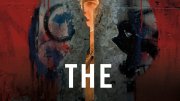In 1987, President Ronald Reagan stood in front of Berlin’s iconic Brandenburg Gate, then cut off from the West by the Berlin Wall, and issued a challenge to his counterpart across the Iron Curtain: “Mr. Gorbachev, tear down this Wall.” Two years later, the Wall crumbled. Now a new book by Mary Elise Sarotte ’88 argues that, contrary to this seemingly neat narrative, leaders in the United States, the Soviet Union, or East and West Germany should not be seen as the “engineers” of the Wall’s far more “accidental” fall.
In The Collapse: The Accidental Opening of the Berlin Wall, Sarotte—a visiting professor of government and history and resident faculty member at the Center for European Studies in 2014—looks at the unexpected sparks that “lit the powder keg” of Berlin 25 years ago. The book builds its story using recently opened archives, personal documents, and, most significantly, interviews with more than 50 individuals involved. She talked to dissidents, journalists (including Tom Brokaw, whom she’ll interview at the Kennedy School on November 18), mid-level bureaucrats, and Stasi guards—“people that no one had ever heard of,” Sarotte says, but whose conscious actions and small mistakes ultimately led to the Wall’s collapse.
She points to the example of Harald Jäger, the senior Stasi guard on duty at the Bornholmer Street border crossing and “the man who opens the Berlin Wall, in a practical sense,” Sarotte says. Sitting down with him two decades later, she learned that Jäger was in the middle of a cancer scare that November, and was waiting to learn about his test results the next day. “That night, as he’s trying to decide what to do, he has this sense, ‘I might be a dead man anyway,’” Sarotte explains. “A lot of people go through that all the time. But they’re not the people who are on duty at the Wall that night.”
Sarotte, who will return to her position at the University of Southern California this January, calls The Collapse a necessary prequel of sorts to her previous book, which focused on the foreign-policy implications of the fall of the Iron Curtain. Russian president Vladimir Putin, then a young KGB officer posted in East Germany, witnessed this “accidental collapse” firsthand, something that Sarotte says has influenced his foreign policy ever since. And for Americans, the false assumption of inevitability and control—that Reagan’s demand really made the difference—led to a triumphalist policy that, by ignoring local contexts, would lead Americans into wars in the Middle East during the following decades. “We don’t know this story in the United States because we have assumed too much authorship of these events to ourselves,” she says. Beyond these lessons, she adds, the book offers something more basic: “This is the twenty-fifth anniversary, and it’s a great story.”









